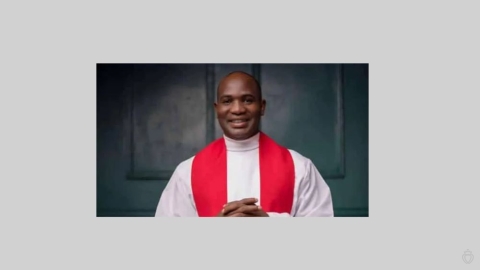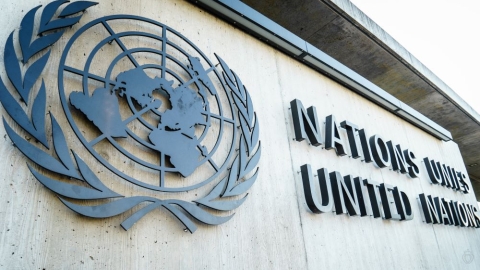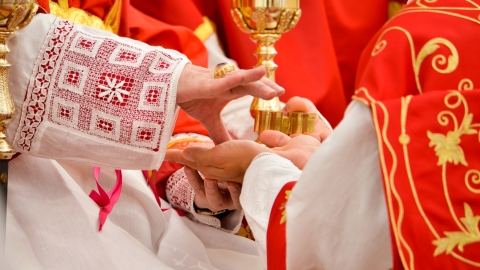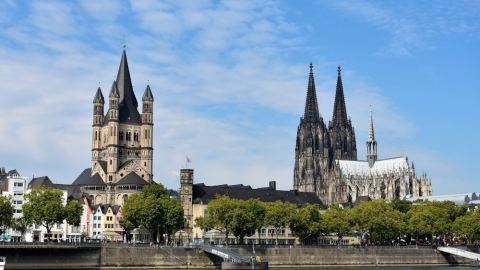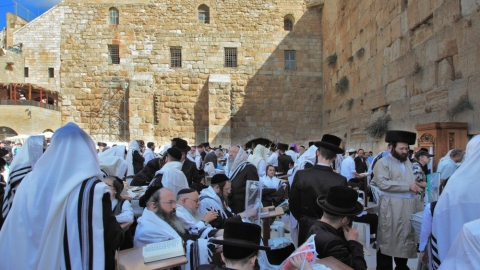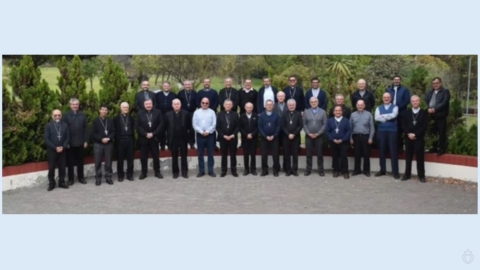Hong Kong: Faced with Beijing's Stranglehold, the Catholic Church Reacts

Agnes Chow
Since the vote by the Chinese executive on June 30, 2020, of the law on national security, the ax seems to have fallen on the freedoms enjoyed by Hong Kong, when the principle of “one country, two systems” was established.
In 1997, the year of the handover of the British colony to China, this system was to preserve the legislative independence and democratic way of life of Hong Kong until 2047. With the passage of this law on national security which represses “separatism, terrorism, subversion, and collusion with foreign forces,” Beijing is daily tightening the stranglehold of repression on the territory of the former British colony.
Facing Beijing, the Christians of Hong Kong, who make up 10% of the city's population - or about 900,000 people (half Catholic) out of 7.5 million inhabitants -, took part in numerous protests in favor of freedom.
Among the young opponents in Beijing, two leaders claim their Christian faith: the Catholic Agnes Chow and the Lutheran Joshua Wong. Aged 23, arrested on August 10 and released on bail, Agnes Chow declared: “I hope that the world, not just Hong Kong... will know that the law on national security is really not a legal instrument, but a political tool for the regime, for the government, to suppress political dissidents.”
Bishop Joseph Ha Chi-shing, auxiliary bishop of Hong Kong, supported this year’s protests. Many young priests also took part in the movement, welcoming demonstrators to their churches, when they had been charged by the police.
Rome, Beijing's Toy?
In Hong Kong, the appointment of a successor to current Cardinal John Tong Hon, who temporarily administers the diocese, remains a major concern for Catholics worried about Beijing's iron fist.
On September 21, Cardinal John Tong Hon published a pastoral letter titled “In Communion with the Church,” the Church of Asia agency reported on September 25. In his letter, Cardinal Tong referred to the social and political tensions that have rocked Hong Kong over the past year, and which have also affected the Catholic community.
The cardinal, while acknowledging that the faithful “are right to expect the local government to act according to their aspirations for justice and democracy,” called on Catholics “to place all their hope in Jesus Christ.” He also asked the Hong Kong priests to “enlighten the faithful and sensitize their consciences to the social doctrine of the Church, so that they can adopt a balanced approach and an adapted behavior when they engage in social movements.” “Priests, on the other hand, should not exert their influence in these areas,” he added.
On the sidelines of these tensions, Cardinal Joseph Zen Ze-kiun, Bishop Emeritus of Hong Kong, went to Rome to plead with the Sovereign Pontiff for the appointment of the Bishop of Hong Kong, he announced on his blog on October 1st. Riccardo Cascioli, director of La Nuova Bussola Quotidiana [The Daily Compass] on September 28 recounted his meeting with the Chinese cardinal shortly before his return to Hong Kong.
Cardinal Zen spent four days in Rome hoping to meet the Pope to explain the situation in Hong Kong and that of the Church in China. One hundred hours had been granted to him in Italy, a special permit to meet the Pope. He was able to deliver a letter to Mgr. Gonzalo Aemilius, Pope Francis’ personal secretary. But no call came from St. Martha’s House to summon him there.
“I came above all for the diocese of Hong Kong, regarding the appointment of the new bishop,” he explained. Worried to learn that Rome intended to choose Fr. Peter Choi, obedient to Beijing's injunctions, he added: “he would be a catastrophe for the Church in Hong Kong. It will spell disaster for decades to come.”
And he knows that the courageous auxiliary bishop of Hong Kong, Mgr. Ha Chi-shing, who “acts according to the teaching of the social doctrine of the Church,” he specified on June 4, was unfortunately declared “to have views critical against the Chinese government, and not enjoying Beijing's blessing.”
“Good intentions are not enough,” said Cardinal Zen, “You have to understand how things are here, you have to know what the Communists are like… I can't even make a fair judgement about the agreement, because even I don't know what it says. This is incredible. I am a Chinese Cardinal and I am not allowed to know what the Holy See has decided for the Chinese Church… The idea of striking accords with Beijing is insane. It's like trying to make a pact with the devil. There’s no grounds for dialogue whatever the argument.”And resigned, Bishop Zen concludes: “The age of the catacombs is back.”
(Sources : cath.ch/eda/oldyosef/nuova bussola quotidiana – DICI n°401, octobre 2020)
Illustration : Ceeseven, CC BY-SA 4.0, via Wikimedia Commons
